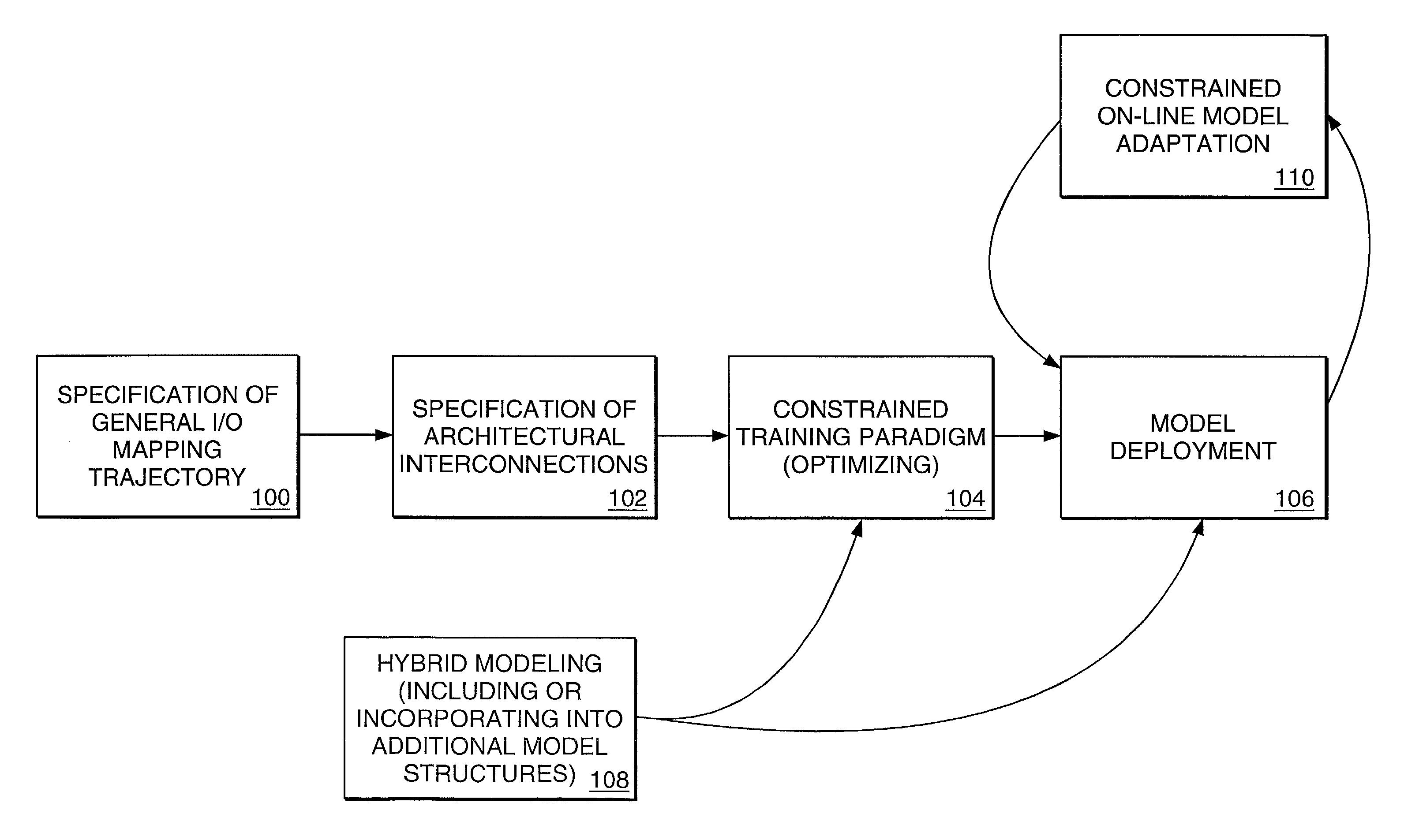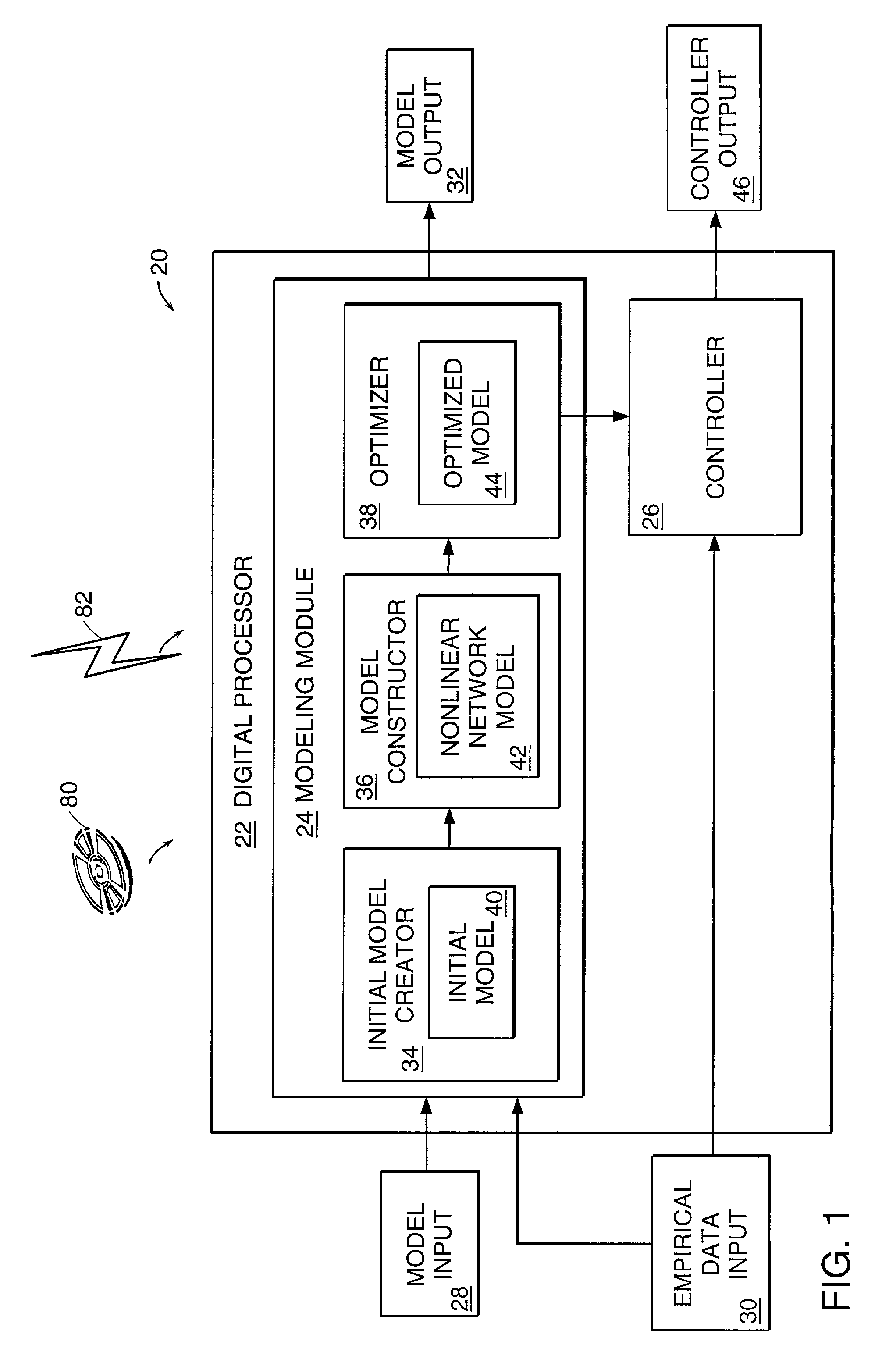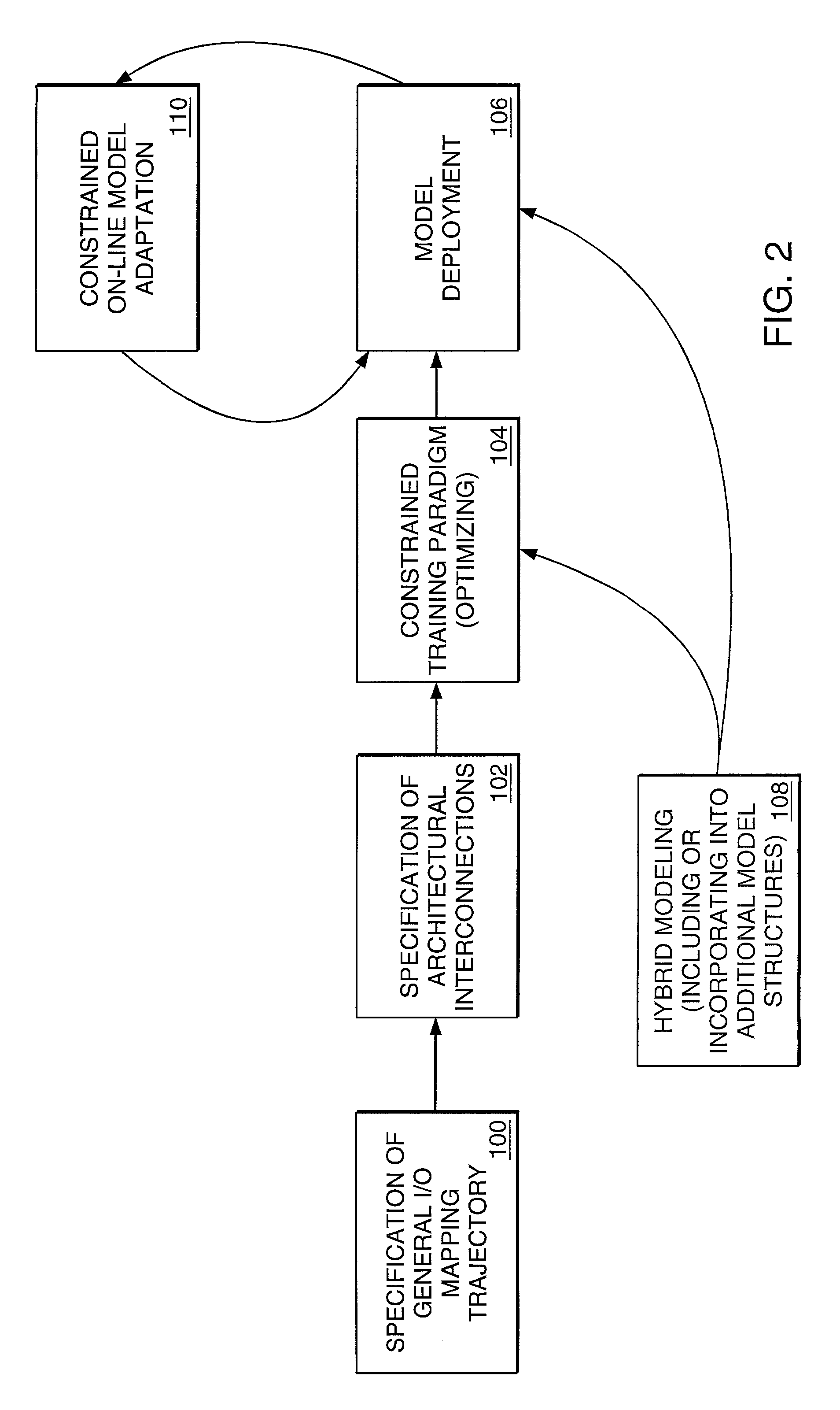Computer method and apparatus for constraining a non-linear approximator of an empirical process
- Summary
- Abstract
- Description
- Claims
- Application Information
AI Technical Summary
Benefits of technology
Problems solved by technology
Method used
Image
Examples
Embodiment Construction
[0032]FIG. 1 is a block diagram of a preferred embodiment of the present invention method and apparatus as implemented in a digital processor 22. The illustrated computer apparatus 20 (and method) for constraining a non-linear approximator to model an empirical process is implemented on a digital processor 22, which hosts and executes a modeling module 24 and a controller 26 in working memory, such as RAM (random access memory). The modeling module 24 includes an initial model creator 34, a model constructor 36, and an optimizer 38. The components of the computer system 20 (e.g., controller 26, initial model creator 34, model constructor 36 and optimizer 38) are implemented on the digital processor 22, as shown in FIG. 1, or, in alternate embodiments, implemented in any combination on two or more digital processors in communication with each other in a distributed computing arrangement. In addition, the components 34, 36, and 38 may be implemented in an online environment where the ...
PUM
 Login to View More
Login to View More Abstract
Description
Claims
Application Information
 Login to View More
Login to View More - R&D
- Intellectual Property
- Life Sciences
- Materials
- Tech Scout
- Unparalleled Data Quality
- Higher Quality Content
- 60% Fewer Hallucinations
Browse by: Latest US Patents, China's latest patents, Technical Efficacy Thesaurus, Application Domain, Technology Topic, Popular Technical Reports.
© 2025 PatSnap. All rights reserved.Legal|Privacy policy|Modern Slavery Act Transparency Statement|Sitemap|About US| Contact US: help@patsnap.com



